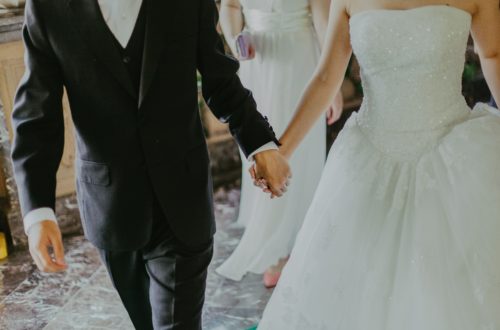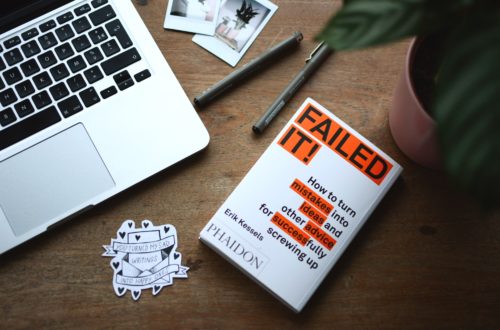
A Minimalist ESL Teacher.

After my first year of being a teacher in a high school, I’ve decided to make a transformation in my thinking and my behavior which I hoped would help me undo my perception of the teaching profession as unsustainable. The necessity of this transformation came from my inability to understand why things that I love to do would take a toll on my life and health.
I already wrote about being depressed and anxious during my first month of teaching, and while a lot of anxiety and depression have left, I am still learning to balance the work and my “after-work-life” by creating strict boundaries, developing procedures, and creating tools to boost my productivity and effectiveness in teaching without sacrificing anything in my life.
For a couple of weeks already I’ve been hooked on the idea of a “minimalist ESL teacher.” I don’t quite know where this idea came from, but I was fascinated by the shift in my thinking this idea caused.
I might be already hearing some concerned voices, “You need to give your all!” “Good teachers go above and beyond for the kids” “Good teachers don’t look forward to weekends!” “Good teachers have a Pinterest class!” to which I say, “What makes you think so?”
In fact, if you look into the routines and the lifestyle of the most successful millionaires and billionaires, you will see that one of the factors due to which they reached success was prioritizing few goals to work on, setting boundaries between work and leisure, focus on self-care and constant reflection.
Tim Ferriss, a New York Times bestselling author, entrepreneur, and investor, speaks about a 4-hour work week. Angela Watson, a blogger and a mentor for thousands of educators, speaks about “getting clarity, and figuring out how to use your life to make impact in ways that really matter”, and this would be possible if teachers stop piling up more stuff, but “strengthen the courage to do fewer things, so what remains can be done even better.”
Bloggers, influencers, investors, businessmen, life coaches preach about Pareto’s 20% percent of actions yielding 80% of your results. It’s obvious, the business world has already shifted to the idea of money-producing assets that transform people’s thinking about work, freedom and personal time/ value ratio output.
Yet, education still remains the area where more work is added to teachers’ plate, administrators in offices decided what teachers should do and how, society is more judgmental about educators than ever before, scores and data determine the value of each individual teacher.
They say the strongest personalities change the status quo. Does the feeling of being oppressed, overworked, and undervalued give me the right or the dare to change anything or at least my life?
Before becoming a substitute teacher at a local public school district, my husband used to tell me I have the best job in the world with weekends off, paid vacation, free summers and no worries about teaching A, B, C to cute children. He never says anything like that anymore. In fact, he confessed he now believes no one can have the right to talk about or judge teachers unless they have been in a classroom at least for a month and gotten to know how teaching profession really works. I am happy my husband got the taste of his own medicine to some extent. This lesson could serve well for those outside of the education who tend to judge teachers.
Anyway, amongst all this confusion in my head and the urge to start changes in my own life, what bubbled to the surface for me is the following: I am in charge of what I do, how I think about my job, and, most importantly, I’m entitled to make any changes in the way I work that seem to give me the most value by putting in only 20% of me. Remember 20/80% principle in business? Who said it cannot work in education?
So the idea I’ve been pondering is that there should be the way to encapsulate my work as a teacher so that what I do in my work would produce most results without spilling into other areas of my life that I’m entitled to as any human in the universe: free time, self-care, traveling, hobby, reading, spending time with my family, being alone, exploring the new and the unknown.
Since the idea is something I still work on, and the final picture of how it’s done is not yet painted, I feel I already have some principles that in fact guide me towards becoming a “minimalist ESL teacher.” Although many of those principles are the work in progress, prioritizing tasks based on these principles is becoming easier and easier and, most importantly, I feel empowered by the control over my time that I potentially might have if minimalist ESL teacher life-work-style will kick into full gear.
So here they are. Principles:
My effectiveness as a teacher is not measured by how many print-outs, cut-outs I produce but by the quality of the communication and rapport I have with my students.
Don’t get confused. I’m not in favor of being not ready for the classes. In fact, I fear to enter the classroom without a minimal list of steps I would follow in my lesson. Planning gives me clarity, calms my anxiety, gives me perspective. However, I definitely stopped over-producing, overprinting, over-focusing on details in my work as a teacher.
I prioritize regular self-reflection, I adjust as I go, I learned to be flexible, I welcome spontaneity in my routines and my students’, I prefer to carry conversations more than stacks of worksheets. It’s not just going paperless and avoiding to work more than my students. It’s total prioritization of relationship building, feedback giving, listening, listening and listening.
In my 3 years of teaching in a public school system, conversations with my students have built many more great relationships than any perfectly planned lesson.
Whatever I do in school between 8 and 3 has to stop at home, no excuse.
This one is still in the process of becoming closer to the ideal. I’ll be honest, I still take work home from time to time; I also do work at home from time to time. What is non-negotiable, however, is the time I allow for school job tasks. It’s never more than 2 hours over the weekend.
I utilize rubrics for fast grading for almost everything. If something doesn’t fit into the allotted time, it goes back to school with no regret or shame. There will always be work. Remember that.
The level of my physical and emotional rest affects the level of my productivity at work.
This is the reason I never allow myself to spend more than 2 hours on work over the weekend if necessary. I give myself permission to relax and forget about my job during the time I’m home.
I’ve learned not to worry about any deadline since all the paperwork and “urgent” reports will be done eventually anyway. In fact, the more I do nothing at home, the more productive and effective I am at work. This became the law for me.
I don’t have to be part of the teacher’s “community” in the school I teach if I feel their principles are different from mine. Hence, less negativity.
I often avoid teachers lounges. My mind cannot stand the beehive level of noise, which is mostly complaining and personal stuff made public. I rarely make friends or participate in social gatherings of local importance. I’m friendly, but I don’t depend on friends to be a productive and valuable teacher.
I’m more of a loner, and it helps me to view many things from the unbiased perspective since I’m not influenced by the “sides.” I know it might sound like it’s quite impossible to be a teacher and be a loner, and yet this works best for me.
I guard my boundaries although welcome acquaintances if I see them as genuine and healthy. With all the things that are happening with teachers unions, I feel like the power to change my financial well-being is somehow in my own hands. I can’t live or exist according to contract lifespans and negotiation deadlines.
I’m the best person to make decisions concerning my work and my time.
When I first heard that my mentor, the most inspiring person in my life also tends to miss deadlines or get reprimand letters from administration, I felt a relief, and I also felt like we all are humans indeed, and that to make mistakes and experiment is part of our being.
Nevertheless, when I used to come to my mentor’s class, I would feel inspired, as usual, learn a ton, be supported and given guidance.
What I see now as the legacy I received is the permission not to be perfect. It is quite liberating, isn’t it?
Lack of self-judgment is the best motivator for a teacher. Besides, by no means is the work a determiner of your personal value and the quality of your life.
Take nothing personally.
Indeed, this is a strong one. Nothing that happens within the school walls is personal, not event the misbehavior of students or the whisper of the colleagues. It’s all perception, and it’s important to remember it.
This too shall pass.
I live with it through difficult times even now. It’s a reminder of how priceless each day is and how silly it would be to be bogged down by any failure or negative thought. It’s also a testament to the courage of being different, trying and experimenting, learning every single day and seizing every moment to live fully.
Have a happy day! Keep creating!
Don’t forget to subscribe to Un-SeriousTeacher and connect on Instagram @unseriousteacher.




